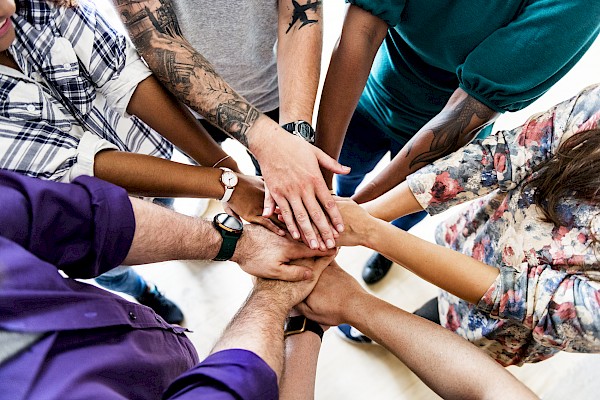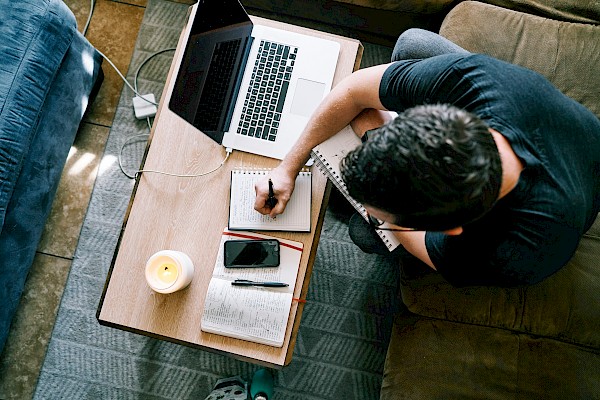Self-care as a parent
The birth of a child marks the start of an incomparable journey full of joy, love and new experiences. But, in addition to the happy moments, parenthood also entails multiple challenges that can affect the brand-new parents’ health and wellbeing.
In this post, we’re going to deep-dive into the issues of parental health and wellbeing after a birth, cast an eye over tried-and-tested self-care strategies, give you tips and tell you what’s available in Zug Canton to support you on this wild adventure.
“Children read the book of their parents’ lives.”
– St Augustine –
Do children guarantee happiness?
Before we examine this issue in more detail, we’d first like to consider the question of whether, in the long term, parents are happier and more contented with their lives after the birth of a child than they were before. Many people see a baby as a happiness guarantee, but is this a myth, or reality?
The results of a recently published study, which analysed the data of over 5500 parents gathered by the Socio-Economic Panel (SOEP) – a representative longitudinal study from Germany – showed how life satisfaction, along with feelings of fear, sadness, anger and happiness, change in the five years before and five years after the birth of the first child. This timescale shows that people were clearly happier and more contented in the years before their first child was born. The feelings of happiness reach an apex in the year after the birth, but then they fizzle out again and only five years after the birth do they reach the same levels as five years before it. Feelings like anger and sadness seem to be experienced only a little in the child’s first year of life. But then the tendency to be angry steadily increased and was evidently stronger until the child’s fifth birthday than it was in the five years before the birth.
In summary, you could say that a baby does not guarantee happiness. The study results make it clear that life with a child entails many positive feelings, but is also stressful, which has a long-term negative effect on the parents’ wellbeing. Therefore it is important to cushion any stresses and strains in the family’s daily routine as best you can, so that the happiness of new parents remains sustainably high.
The challenges of parenthood
Parental responsibilities entail a profusion of changes, on both the physical and the psychological level. Studies show that the lack of sleep, the need to adjust to new routines and coping with the stress are among the most frequent challenges that parents face; this can also affect mental health and general wellbeing. That’s why it is essential that you, as a new parent, do not neglect yourself in all the tasks and responsibilities, but practise self-care. Only: is this even possible, with a screaming baby, full nappies, sleepless nights and general everyday tasks and obligations?
Self-care as a parent
Parental self-care quickly becomes low priority during daily life with an infant. And no wonder, because the tiny human requires round-the-clock attention from Mum and Dad. This is more demanding than any full-time job and, as a result, the brand-new parents need to be very adaptable. During this time, it’s only natural that Mum and Dad’s needs take a back seat so they can focus on their child, meaning that they invest all their time and energy in caring for their baby and ensuring it thrives. This is both right and important. Nevertheless, you should also be aware of your own needs and create moments for self-care during everyday life with a baby, in order to do something good for your health and personal wellbeing. Here are a few tried-and-tested strategies for you:
- Social support: Sharing experiences with other parents and seeking support from family and friends can help to reduce isolation and boost wellbeing. It often doesn’t need to be anything big. Rather, the biggest help in daily life with an infant can be grandpa, grandma, aunt or uncle taking a walk with the pram so that mum and dad have a little time to themselves. In Zug Canton, Fachzentrum Punkto has groups and services available for parents where they can exchange experiences.
- A balanced diet and exercise: A balanced diet and regular physical exercise are not just good for physical health, but also for mental and emotional health. That’s why you should make sure you take regular exercise and eat healthily. Go for a walk every day, even if it’s only for 20 minutes. And so that you don’t miss out on a balanced diet in daily life with a baby, it can be really helpful to batch-cook meals in advance, as they will then only need to be reheated.
- Mindfulness and relaxation: Relaxation techniques like meditation and breathing exercises can reduce stress and boost mental health. Small sequences of 5 minutes per day can also be enough to make your daily routine more relaxed. You can find instructions for various breathing exercises here, and there are other relaxation exercises here. “I don’t have time” is not an excuse! You can do breathing exercises anywhere, at any time. For example, when you’re breast-feeding or bottle-feeding, you can breathe deeply into your belly, which will make you calmer and more composed. It’s also more than possible that breathing deeply and consequently relaxing will help your child to relax too. Give it a try!
- Communication and teamwork: Open communication and supportive teamwork with your other half can help to minimise conflicts and boost the wellbeing of both parents. So, in between nappy changes, feeds, calming your baby and rocking him or her baby to sleep, don’t forget to talk to each other and share. Are you not coping on your own? Would you be glad of professional support to improve communication between the two of you? Both Fachzentrum eff-zett and Fachzentrum Punkto provide counselling for couples, families and parents.
You feeling good and taking care of yourself and your mental and physical health is just as important for your child as it is for you. When mum and dad are well, baby is well.
Here is a list of documents with tips and support services:
- «So bleibe ich als Mutter oder Vater seelisch stark!»Tips for parents-to-be – tips for parents with babies (in German)
- Schweizerischer Fachverband Mütter- und Väterberatung
- Elternsein lernen – Elternbildung Schweiz
- Hebammen
- Notruf für Eltern
- Pro Juventute Elternberatung 24/7
References
Asselmann, E., & Specht, J. (2023). Baby bliss: Longitudinal evidence for set-point theory around childbirth for cognitive and affective well-being. Emotion (Washington, D.C.), 10.1037/emo0001217. Advance online publication. https://doi.org/10.1037/emo0001217
Cameron, E. E., Sedov, I. D., & Tomfohr-Madsen, L. M. (2016). Prevalence of paternal depression in pregnancy and the postpartum: An updated meta-analysis. Journal of Affective Disorders, 206, 189-203.
Dennis, C. L., & Dowswell, T. (2013). Psychosocial and psychological interventions for preventing postpartum depression. Cochrane Database of Systematic Reviews, 2.
Guardino, C. M., & Schetter, C. D. (2014). Coping during pregnancy: A systematic review and recommendations. Health Psychology Review, 8(1), 70-94.
Feinberg, M. E. (2002). Coparenting and the transition to parenthood: A framework for prevention. Clinical Child and Family Psychology Review, 5(3), 173-195.
Kolu, P., Raitanen, J., Luoto, R., & Mäntymäki, M. (2020). Postpartum exercise engagement and barriers in a multi-ethnic sample: A prospective cohort study. BMC Public Health, 20(1), 1-9.
Shorey, S., Chan, S. W. C., Chong, Y. S., & He, H. G. (2018). Perceptions of primiparas on social support from their male partners during the antenatal period. Midwifery, 59, 59-65.
 subscribe to newsletter
subscribe to newsletter


